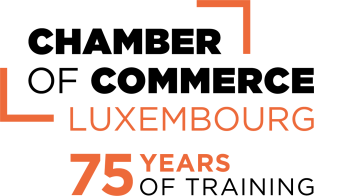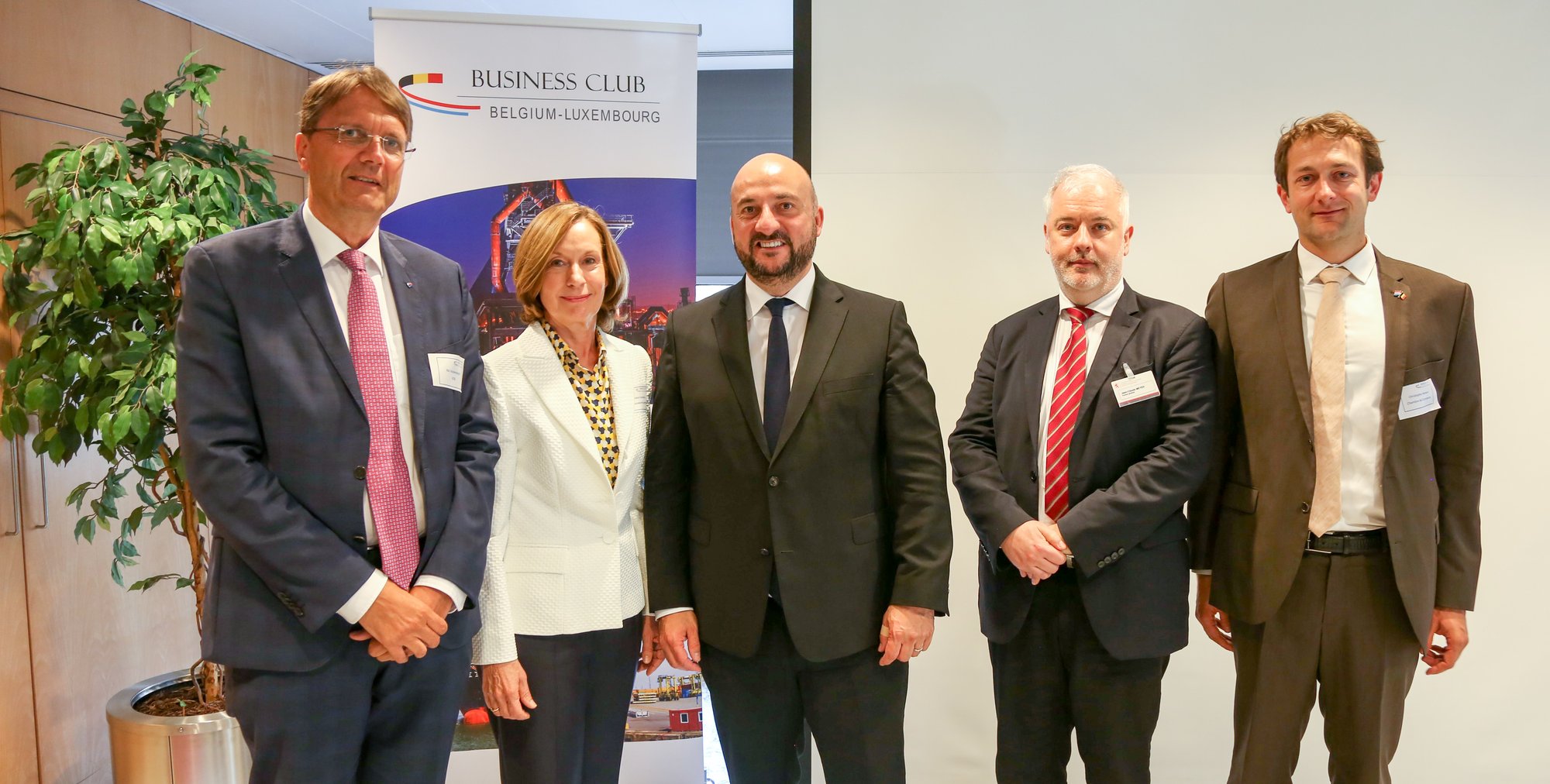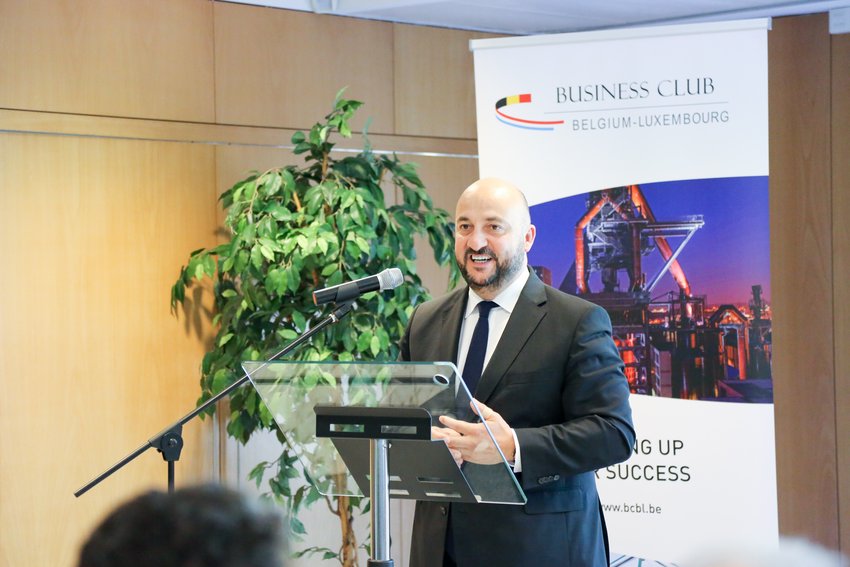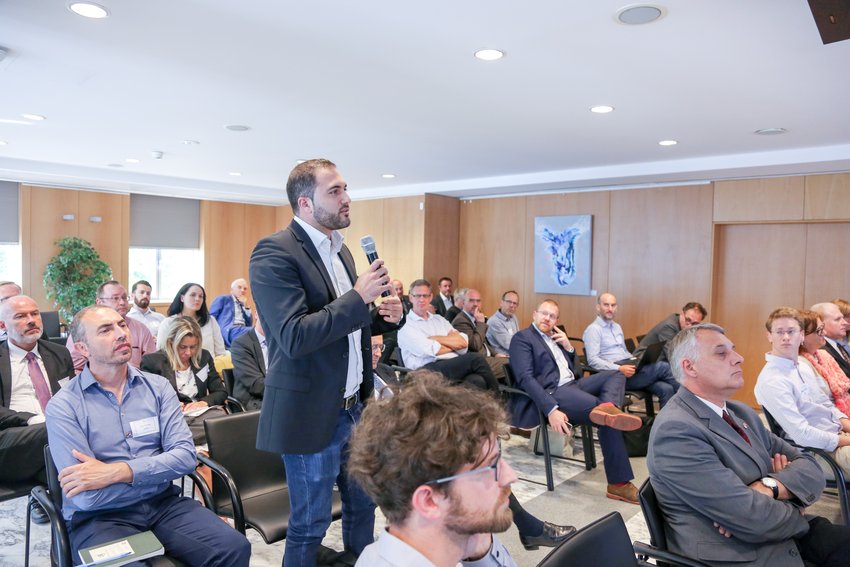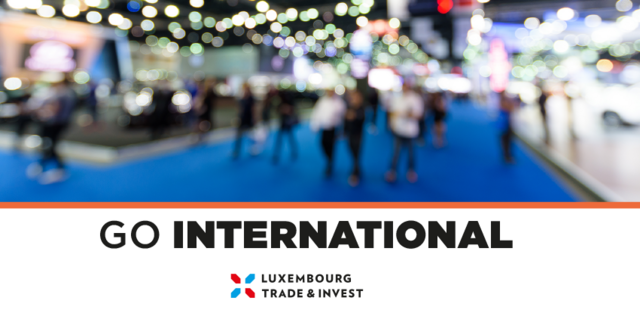
BCBL
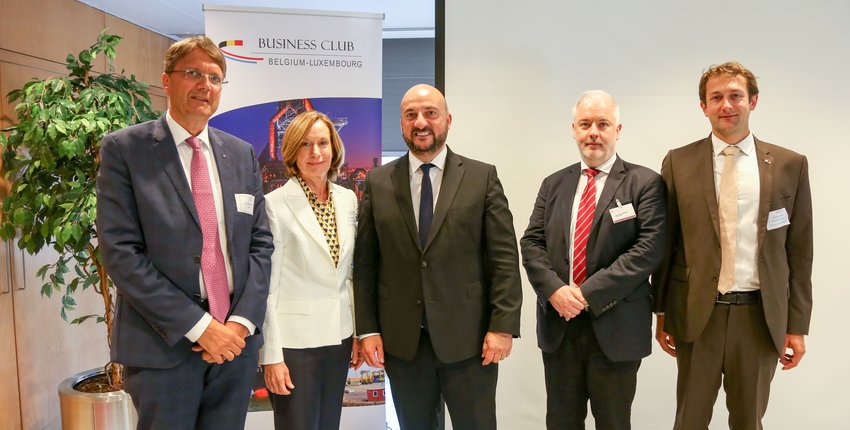
In its series of thematic conferences, the Business Club Belgium-Luxembourg (BCBL) gathered over 60 participants from Luxembourg and Belgium, companies active in the space sector, the BCBL member companies, as well as public authorities, for a conference which took place on 28th May in Brussels at the Maison du Grand-Duché de Luxembourg, with Vice-Prime Minister and Minister of the Economy, Mr. Etienne Schneider, on the topic of Luxembourg’s Space Resources initiative.
“Luxembourg used to be a poor and a mainly agricultural country until the discovery of the iron ore in the southern regions allowing the industrialization and the creation of a certain wealth. But the economy needed a reboot after World War II and Luxembourg cofounded the CECA and signed the Rome treaties in 1957. Since the mid-nineteen-seventies the main engine of the Luxembourg economy became the financial services which allowed a kind of soft-landing from the first and second oil crisis. Today Luxembourg is one of most important financial centers and the second largest fund industry in the world” says Minister Etienne Schneider.
Because of its size, Luxembourg often had to do things differently from the bigger neighbors and therefore had to adapt niche strategies to succeed. The 3rd industrial revolution strategy by Jeremy Rifkin for Luxembourg urges for a diversification of the Luxembourg economy. The Space Resources initiative by the Luxembourg Government perfectly fits this need, even if the space industry was already born some 30 years ago in Luxembourg with the creation of SES, today the biggest commercial satellite operator in the world. But we can do even better.
“Luxembourg and the United States of America, are the two only countries in the world that have a legal framework on exploration, use and commercialization of resources from Near Earth Objects (NEOs), such as asteroids” says Minister Schneider who is a kind of godfather to the Space Resources initiative. The two legal frameworks are quite similar, but not when it comes to the funding by venture capital of the concrete activities in the space sector. The US model only allows national funding whereas Luxembourg has more flexibilities on funding “which is our competitive advantage and attracts space companies from all over the world which see Luxembourg as the European hub in the exploration and use of space resources ”.
Since the launch of the initiative, companies like DSI, Ispace, Blue Horizon, Gom Space, Kleos Space or Spire already settled down in Luxembourg. According to Etienne Schneider “more than 100 companies, organizations and international research centers are interested in a partnership with the initiative or setting up activities in Luxembourg”.
The keynote speech of Minister Etienne Schneider was followed by a very interactive Q and A session during which representatives of companies like Solvay or Ispace but also from NEREUS (network of european regions using space technologies) had the opportunity to get more details from the Minister. Etienne Schneider made clear that it is not just about going up there and bringing minerals back. One could think for instance of producing energy in space for the refueling of satellites or space vessels and producing other goods and machinery that today we have to bring up with substantial costs.
Luxembourg is working with several countries like Japan or China and strongly advocates for cooperation on legal and regulatory matters as well as in R&D. According to the Minister the Chinese Academy of Sciences was about to establish a research laboratory in Luxembourg and that the long term objective is to create an exclusively business orientated space agency in Luxembourg.
Etienne Schneider says: “Luxembourg is well prepared to become a smart nation in line with the Rifkin strategy for Luxembourg. Our priority is the development of the key sectors ICT, space, logistics, health technologies, and environmental technologies. We want to be the architects of our future and shape it in line with our objectives of sustainable growth and quality of life. It is important to avoid in space the economic mistakes we have made down here”.
The conference was followed by a networking reception during which all participants could continue the fruitful conversations.
Following the conference of the Future of Smart Cities, this was the second thematic conference of the BCBL. For additional information about the Business Club as well as its upcoming events, please visit the website: www.bcbl.be.
